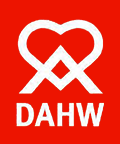In the reporting year, 130 projects in 18 countries organised social and economic rehabilitation (SER) activities that reached more than 100,000 persons. Social and economic rehabilitation includes income-generating activities, the support of formal and informal education and training, the provision and renovation of housing, a great variety of social aids as well as several advisory services. Support is offered to individuals as well as to families, mainly people affected by leprosy. These service-oriented projects are co-operating with their clients without especially involving the community.
In parallel, a shift was initiated from the SER approach to the rehabilitation of people in their familiar environment through community based rehabilitation (CBR). The concept of CBR is inclusive of the rehabilitation of people with disabilities irrespective of cause, whether as a result of leprosy or other diseases or through accidents. It is a participative method of rehabilitating people in their own surroundings by closely involving the family, neighbours and the community. The community should be enabled to take responsibility for the needs of its disabled members. The support of self-help groups and of organisations of people with disabilities plays a decisive role in this process.
The first step in putting this new concept into action was to provide CBR training to 17 DAHW workers from Ethiopia, Egypt, India, Nigeria, Senegal, Sierra Leone, Sudan, Tanzania, Uganda and from the headquarters in Wuerzburg.
The second step was to develop country strategies to manage the shift from SER to CBR. Such strategies have already been finalised for Ethiopia, India, Colombia, Senegal and Tanzania, and are ready for implementation. In Nigeria, suitable plans are well advanced, for the other countries basic planning principles have been prepared and their plans will be developed further.
In December 2008, DAHW supported and participated in an international conference in Berlin titled “Nothing about us without us” in co-operation with the Disability and Development Co-operation Association (Verein Behinderung und Entwicklungszusammenarbeit – BEZEV), the Christoffel Blind Mission (CBM), the Special Interest Group Self-Determined Life in Germany (Interessenvertretung Selbstbestimmt Leben in Deutschland – ISL) and Misereor. The DAHW project officer Ernst Hisch demonstrated how this participatory approach can work by giving an example from Ethiopia. All participants as well as international experts in development co-operation, whether disabled or not, agreed that people with disabilities must be actively included in society if poverty is to be overcome worldwide.
This change of perspectives is the basic idea of the UN “Convention on the Rights of Persons with Disabilities”. 80 per cent of the approximate 650 million people with disabilities worldwide live in developing countries.
back to the Annual Report 2008



